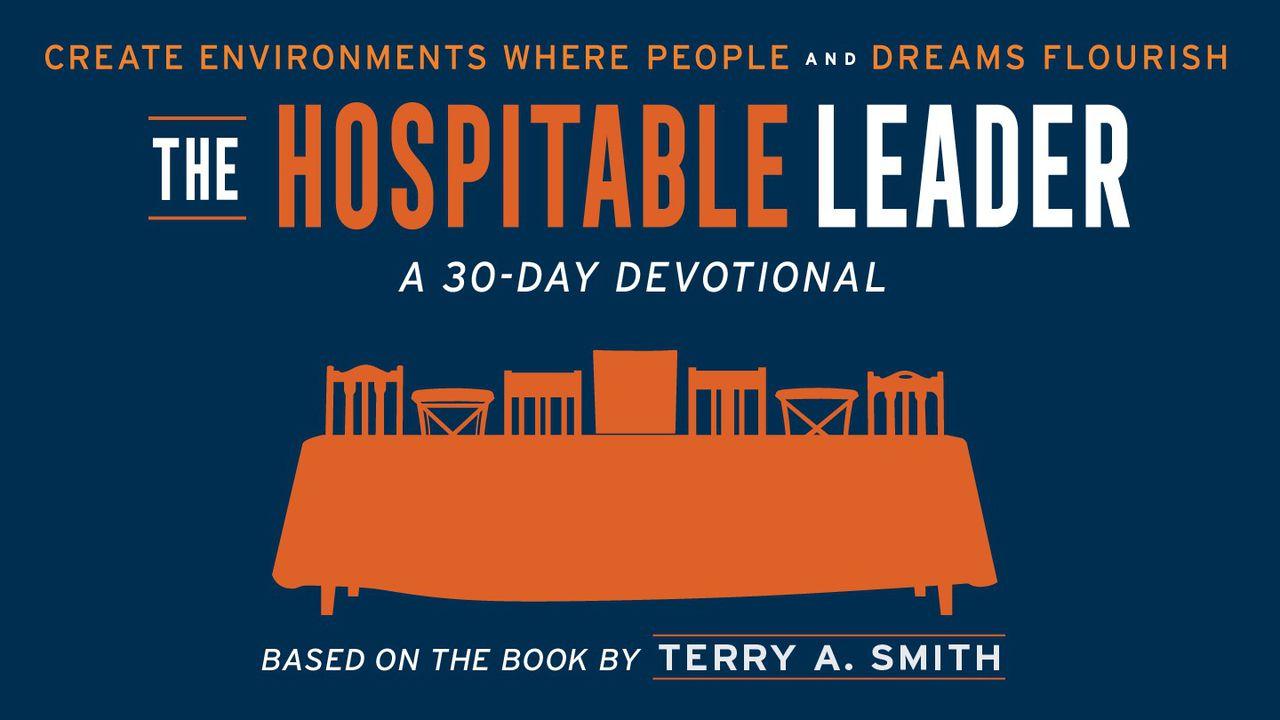The Hospitable Leader DevotionalExemplo

Today’s passage, though lengthy, is an incredible and dramatic story that provides many leadership insights, particularly regarding how to communicate well with those around us.
In short, King David’s son, Amnon, raped his sister, Tamar, which grieved their brother Absalom. As a result, Absalom plotted to murder Amnon, resulting in David’s depression and Absalom fleeing Israel. After years, Absalom was welcomed back to the city, yet was kept away from David. To show his frustration and want to see his father, Absalom set fire to one of David’s men’s fields. David subsequently welcomed Absalom back and enlisted him in an important role, but Absalom ended up creating a coup that rose up against David, forcing the king to flee his own kingdom of Israel. After a civil war, Absalom ended up being killed, leading to the deepened sorrow of his father, David.
This dramatic (and true!) story is full of heartbreak. We can imagine David, at the end of all of this, having a “post-mortem” with his leadership team, assessing what went wrong where. There is certainly plenty of blame to throw around, you know, with the insurrection and murder and all. However, from David’s point of view, the blame perhaps sits most not with the murderers or insurrectionists or rapist, though they take the full blunt of their egregious sins, but with David himself, the leader of the kingdom. He has plenty of reason to be upset with those around him, but he had plenty of chances to responsibly resolve all of the issues yet neglected them to the point of losing his entire family and kingdom.
Our hearts may most break with the plight of Absalom, the brother who is aggrieved by Amnon’s reprehensible rape, or Tamar, who takes out his revenge on Amnon. Though revenge is not Absalom’s job, our human nature can identify with this justice-thirsty act. Absalom had to have been broken to his core, and after seeking the face of his father, even his father rejected him. And even when his father let him back into the kingdom, he was rejected yet again, breeding serious resentment that led to bloody disloyalty. However, we must see that David had the ability to resolve this way before it ever precipitated to such resentment. As Terry Smith says in The Hospitable Leader, “Tragically, by the time David finally kissed Absalom, it was too late. Nine years of rejection and separation had engendered an environment where bitterness grew into all-out rebellion.… I feel like crying every time I read this. David did not need to have died for his son: he just needed to have kissed him sooner.”
Communicating in time, not pushing back the deadline of difficult conflict, can leash the most volatile of situations. Most times, people simply need to be “kissed” and brought back in after their self-admittedly regrettable actions. Throughout the whole situation, David could have brought relational resolve, from fixing Tamar’s situation to welcoming Absalom sooner. But how often do we also understand the difficulty of David’s situation, having to confront heartbreak head-on, yet neglecting it because of the difficulty of the situation? To be effective leaders, we must communicate in a timely and loving manner, “kissing” those who are distant.
Sobre este plano

We live and lead in inhospitable places. Many leaders, hoping to change the world for the better, only add to the darkness. This devotional, based on the principles found in The Hospitable Leader by Terry A. Smith, engages the scriptural idea of becoming a leader that creates hospitable environments where people and dreams flourish. You will learn to lead like Jesus as he revolutionized the world through his hospitable way of welcoming in a diversity of strangers, promoting beauty, speaking truth in love, and much more.
More
